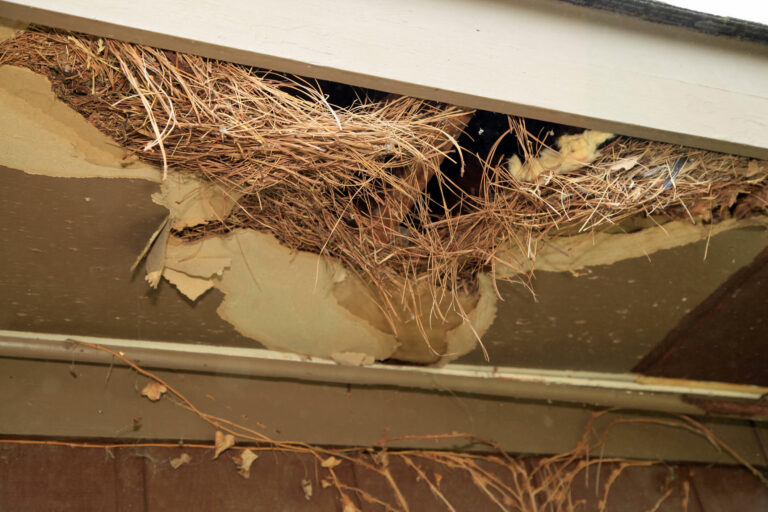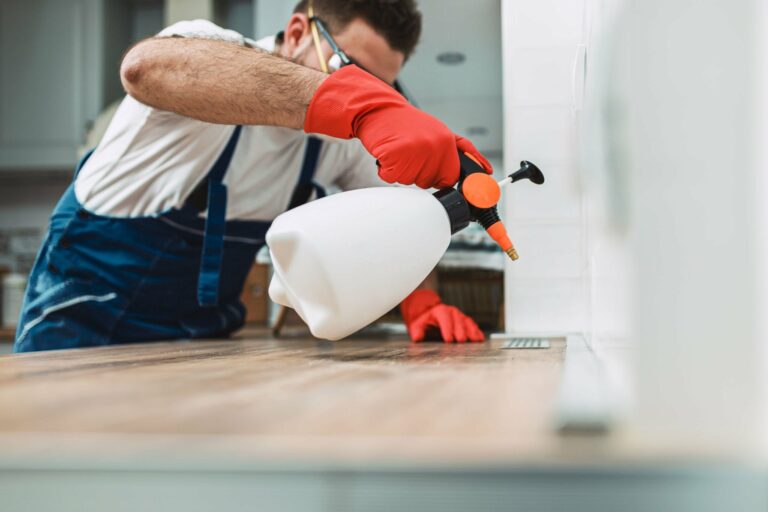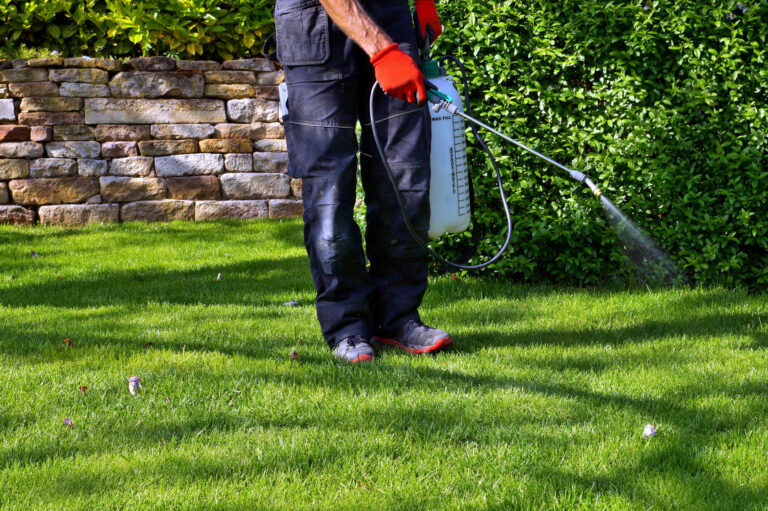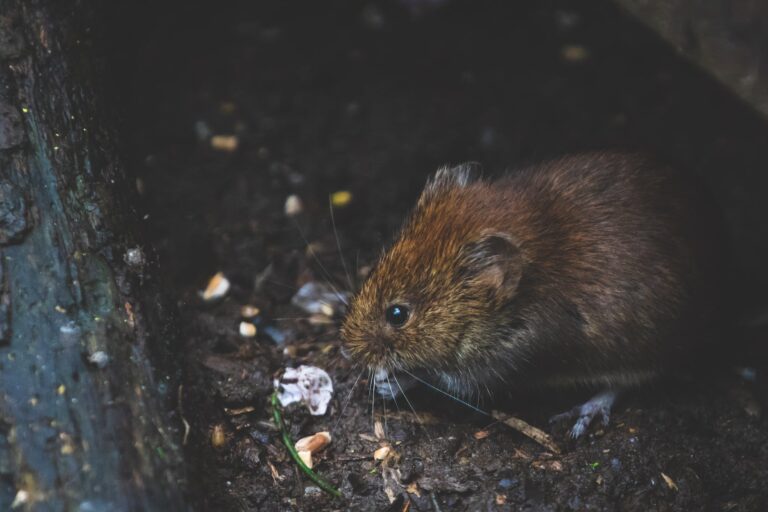Nature’s Defenders: Exploring Natural Pest Control Methods
Are pesky pests invading your garden like an army of relentless soldiers? Look no further! In ‘Nature’s Defenders: Exploring Natural Pest Control Methods,’ you will discover a world of effective and eco-friendly solutions to protect your plants and home.
Imagine turning your garden into a fortress, guarded by an army of beneficial insects, like ladybugs and praying mantises. Picture harnessing the power of essential oils, like peppermint and neem, to repel unwanted invaders.
Learn how to create your own homemade remedies to combat pests without harmful chemicals. With a pest-friendly garden and integrated pest management techniques, you can reclaim your space from the clutches of pests.
Get ready to become a defender of nature and bid farewell to those pesky invaders!
The Benefits of Natural Pest Control
You’ll be amazed at the numerous benefits natural pest control brings to your home and garden. By choosing natural methods to combat pests, you not only protect your health and the environment but also save money in the long run.
One of the key advantages of natural pest control is that it reduces the risk of exposure to harmful chemicals. Traditional pesticide sprays can linger in the air and on surfaces, posing health risks to you, your family, and your pets. With natural pest control, you can rest assured knowing that you’re using safe and non-toxic methods to eliminate pests.
Furthermore, natural pest control methods are environmentally friendly. Chemical pesticides can have detrimental effects on the ecosystem, harming beneficial insects, birds, and even the soil. Natural pest control methods, on the other hand, work in harmony with nature. For instance, introducing beneficial insects like ladybugs or lacewings can help control aphids and other garden pests without causing harm to the environment.
In addition to being safe and eco-friendly, natural pest control can also save you money. Chemical pesticides can be expensive, especially if you have a large garden or persistent pest problems. By utilizing natural methods, such as companion planting or using homemade insect repellents, you can significantly reduce your expenses on pest control products.
Understanding the Role of Beneficial Insects
One way to further enhance the benefits of natural pest control is by understanding the significant role that beneficial insects play in controlling pests. Beneficial insects are a crucial component of the ecosystem and can provide effective and sustainable pest control solutions. These insects act as natural predators, feeding on pests and keeping their populations in check.
Ladybugs, for example, are well-known for their voracious appetite for aphids, which are destructive pests for many crops. By releasing ladybugs into your garden, you can effectively control aphid populations without the need for harmful chemical pesticides.
Another beneficial insect is the praying mantis, which feeds on a wide variety of pests including flies, mosquitoes, and moths. These insects are highly efficient hunters and can significantly reduce pest populations in your garden. Additionally, lacewings and hoverflies are valuable allies in natural pest control. Lacewing larvae are known to feed on aphids, mites, and other soft-bodied insects, while hoverflies prey on aphids, thrips, and small caterpillars.
To attract beneficial insects to your garden, it’s important to provide them with suitable habitats. Planting diverse native flowers and herbs can create a welcoming environment for these insects, as they provide nectar, pollen, and shelter. Avoiding the use of chemical pesticides is also essential, as they can harm beneficial insects and disrupt the natural balance of your garden.
Harnessing the Power of Essential Oils
Harness the power of essential oils to naturally control pests in your garden. Essential oils can be a powerful tool in your arsenal against unwanted insects and pests. These oils are derived from plants and contain concentrated compounds that have been proven to repel or kill pests.
One popular essential oil for pest control is neem oil. Neem oil is derived from the neem tree and is known for its insecticidal properties. It can be effective against a wide range of pests including aphids, mealybugs, and whiteflies. To use neem oil, simply mix it with water and spray it onto the affected plants.
Another essential oil that’s commonly used for pest control is peppermint oil. Peppermint oil has a strong scent that repels pests such as ants, spiders, and mosquitoes. To use peppermint oil, dilute it with water and spray it around the perimeter of your garden or on the affected plants.
Lavender oil is another essential oil that can be used to control pests. It has a calming scent that repels pests like moths, fleas, and flies. To use lavender oil, mix it with water and spray it onto your plants or use it in a diffuser to deter pests from entering your garden.
DIY Pest Control Remedies
For effective and affordable pest control solutions, look no further than DIY remedies. When it comes to dealing with pests, you don’t always need to rely on expensive professional services or harsh chemicals. There are plenty of simple and effective remedies that you can try at home to keep those pesky critters at bay.
One popular DIY pest control method is using vinegar. Not only is vinegar a common household item, but it’s also a natural and safe alternative to chemical sprays. Create a solution of equal parts vinegar and water, and spray it around areas where pests are likely to be found, such as doorways, windowsills, and countertops. The strong odor of vinegar is known to repel ants, spiders, and even mosquitoes.
Another effective DIY remedy is using baking soda. This humble ingredient can be used to deter and eliminate pests such as cockroaches and silverfish. Simply sprinkle baking soda in areas where these pests are commonly seen, such as under sinks, behind appliances, and in cracks and crevices. The baking soda will absorb moisture and dehydrate the pests, ultimately causing their demise.
Lastly, don’t underestimate the power of citrus fruits. Lemons, oranges, and grapefruits contain natural oils that are toxic to many insects. You can create a simple DIY spray by boiling citrus peels in water and allowing the mixture to cool. Transfer the liquid to a spray bottle and use it to target areas where pests are present. The citrus scent won’t only repel pests but also leave your home smelling fresh and clean.
Creating a Pest-Friendly Garden
How can you naturally create a garden that attracts beneficial insects and repels pests?
Creating a pest-friendly garden is all about fostering a balanced ecosystem where beneficial insects can thrive and help control pests.
One way to do this is by planting a variety of flowering plants that attract beneficial insects such as ladybugs, lacewings, and bees. These insects feed on common garden pests like aphids and caterpillars, keeping their populations in check. Additionally, incorporating native plants into your garden can help attract a diverse range of beneficial insects that are adapted to your local environment.
Another effective strategy is to practice companion planting. This involves planting certain crops and flowers together to deter pests. For example, planting marigolds alongside tomatoes can repel nematodes, while garlic and onions can deter aphids and other insects.
Creating diverse habitats in your garden can also attract beneficial insects. This can be achieved by providing shelter, such as small piles of rocks or logs, for insects to hide and overwinter. Installing birdhouses or bird feeders can also attract birds, which are natural predators of many garden pests.
Lastly, avoiding the use of chemical pesticides is crucial for creating a pest-friendly garden. These chemicals can harm beneficial insects and disrupt the natural balance of your garden. Instead, opt for organic pest control methods like handpicking pests, using insecticidal soaps, or spraying a solution of water and neem oil.
Natural Pest Control for Your Home
Are you struggling with pests in your home and wondering how to naturally control them? You’re not alone. Dealing with pests can be a constant battle, but there are natural methods you can use to keep them at bay without resorting to harmful chemicals.
One effective way to control pests is by keeping your home clean and tidy. Pests are attracted to food and water sources, so make sure to store food in sealed containers and fix any leaks or standing water.
Another natural pest control method is to use essential oils. Certain oils, like peppermint, lavender, and tea tree oil, have strong scents that repel pests. Simply mix a few drops of the oil with water in a spray bottle and apply it to areas where pests are known to frequent.
In addition, you can try using natural pest repellents such as diatomaceous earth and vinegar. Diatomaceous earth is a powdery substance that’s effective against insects, while vinegar can deter ants and flies.
Integrated Pest Management: A Holistic Approach
To effectively manage pests in your home, consider adopting an integrated pest management approach that takes a holistic view of the problem. Integrated Pest Management (IPM) is a comprehensive and environmentally friendly approach to pest control that aims to minimize the use of chemical pesticides. It focuses on preventing pest infestations by addressing the underlying causes and using a combination of strategies.
One of the key principles of IPM is to identify and monitor pests accurately. By understanding the specific pests you’re dealing with, you can develop targeted solutions. Regular inspections and monitoring allow you to detect early signs of infestation and take appropriate action.
IPM also emphasizes the use of cultural and mechanical controls. These methods include proper sanitation practices, such as cleaning up food spills and removing clutter, to eliminate pest food sources and hiding places. Mechanical controls, like sealing cracks and installing screens, physically prevent pests from entering your home.
Biological controls are another important aspect of IPM. This involves introducing natural predators or parasites that feed on the pests, helping to keep their populations in check. For example, ladybugs are beneficial insects that prey on aphids, which are destructive garden pests.
Chemical pesticides are used sparingly and as a last resort in IPM. If needed, they’re selected based on their effectiveness against the specific pest and their minimal impact on non-target organisms and the environment.
Harmony with Nature: The Win-Win of Embracing Natural Pest Control Methods
In conclusion, natural pest control methods offer numerous benefits for both our environment and our health.
By understanding the role of beneficial insects and harnessing the power of essential oils, we can effectively manage pests without the use of harmful chemicals.
DIY remedies and creating pest-friendly gardens provide additional options for controlling pests naturally.
Finally, adopting an integrated pest management approach allows us to take a holistic approach to pest control, promoting a healthier and more sustainable environment.
Embracing nature’s defenders is a win-win for all.







